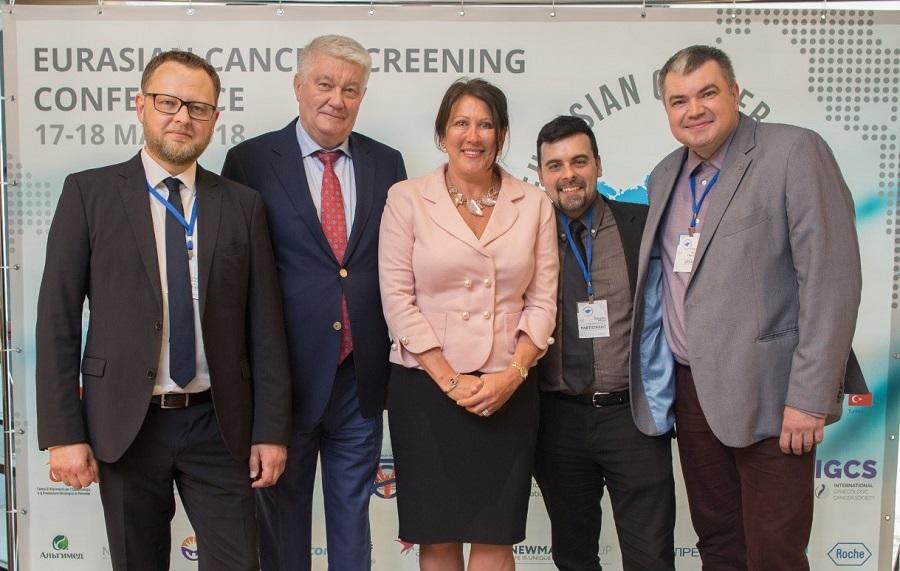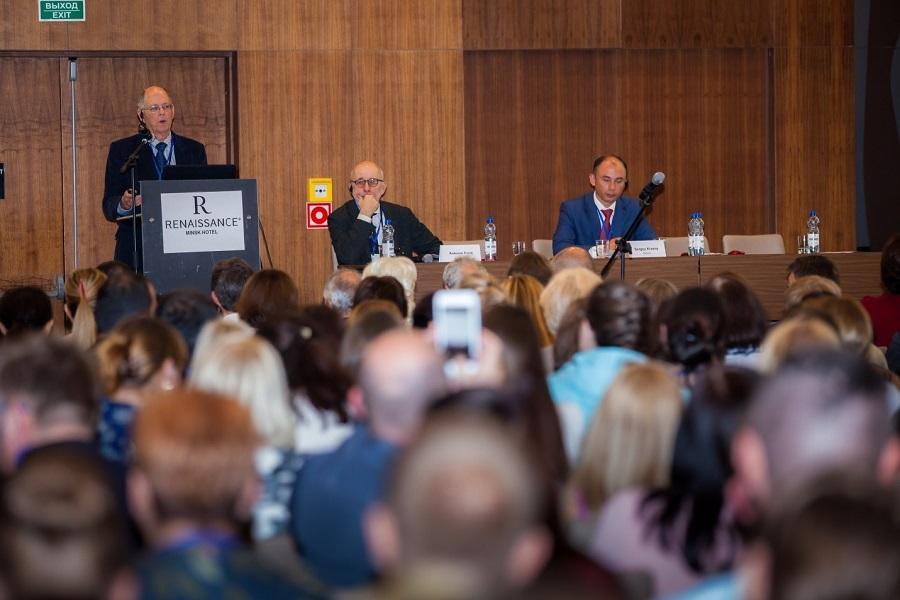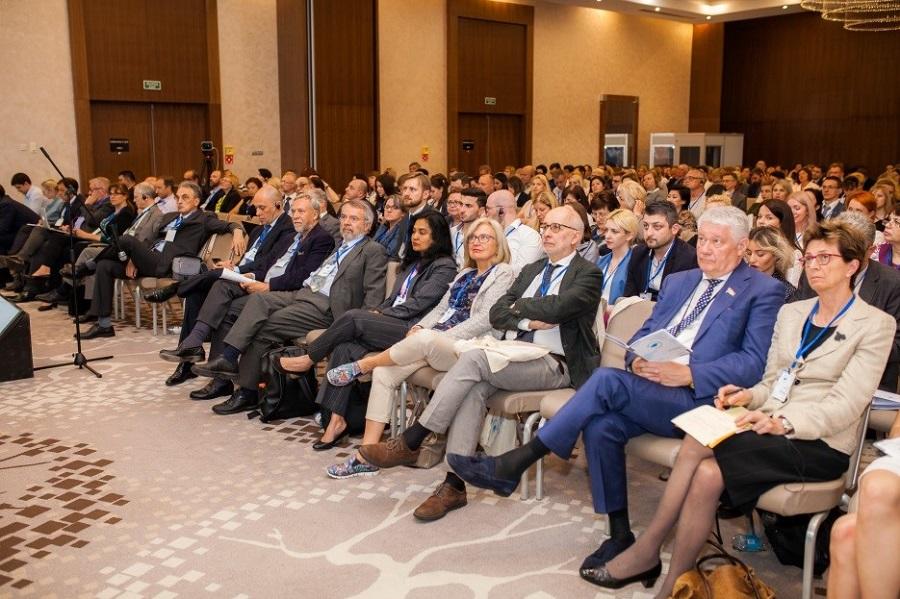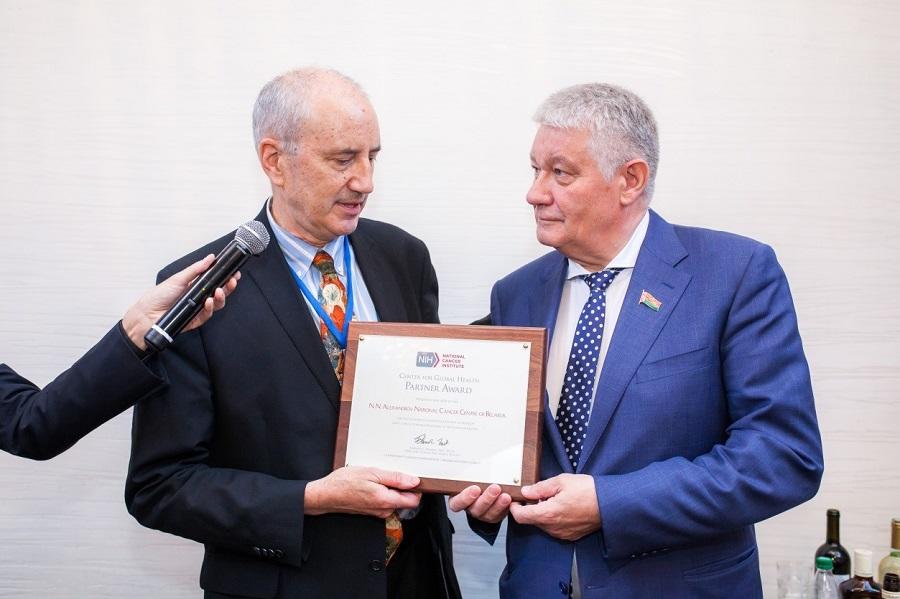Successful Outreach for Collaboration on Cancer Research in Eurasia
, by Doug Perin and Sophia Michaelson
In May 2018, CGH representatives traveled to Minsk, Belarus to continue our collaboration with Eurasian ministries of health, national cancer institutes, and other regional and international organizations. Together with N. N. Alexandrov National Cancer Centre of Belarus, we convened the first Eurasian Cancer Screening Conference, held on May 17-18th, 2018. The event focused on results derived from evaluations of national cancer screening programs, and needs of cancer research and implementation from countries in Central Asia (Kazakhstan, Kyrgyzstan, Tajikistan, Turkmenistan and Uzbekistan), the Caucasus (Armenia, Azerbaijan, and Georgia), the Baltics (Estonia, Latvia, and Lithuania) and Central & Eastern Europe (Russian Federation, Moldova, Poland, Romania, Serbia, Slovakia, Slovenia, and Ukraine).
The Eurasian region is home to approximately 350 million people with strong cultural and ancestral ties to the U.S. from immigration that spans several generations. Research, implementation, and evaluation of effective cancer screening strategies in Eurasia offers U.S.-based cancer screening researchers an opportunity to gain knowledge on the approaches and success stories of cancer screening programs in the region. This is especially important when considering cancer types for which screening programs are not in place in the U.S.; and where evidence to the effectiveness of these programs is still developing, such as gastric cancer screening.
The two-day conference buzzed with the energy of over 600 participants from 26 countries. International partners that contributed to its success include the Association for Directors of Institutes of Oncology and Radiology, CIS & Eurasia; the Belarusian Society of Oncology; the International Gynecologic Cancer Society; Maria Sklodowska-Curie Memorial Cancer Center/Poland; the Reference Centre for Epidemiology and Cancer Prevention in Piedmont/Italy; the World Health Organization (WHO); the World Endoscopy Organization; and the International Cancer Screening Network (ICSN). The audience was fully engaged in the discussions and presentations given throughout the two days. The first day was dedicated to plenary sessions on the principles of cancer screening and shared experiences of successes and challenges in cancer screening implementation among researchers and program managers from U.S., Russia, Europe, and Central Asia. The second day featured four parallel sessions for in-depth discussions on evidence-driven cancer screening implementation and further research opportunities in breast, cervical, colorectal, and prostate cancer screening.
Participants were eager to point out the scientific quality, uniqueness, and importance of the Eurasian Cancer Screening Conference, which allowed for insightful conversations among experts, students, and early-career researchers about the achievements, challenges, and perspectives for progress in the field. In recognition of the success of this strong collaboration, CGH’s Director, Dr. Ted Trimble, presented N. N. Alexandrov National Cancer Centre of Belarus with a Partner Award for their outstanding efforts in the development of joint cancer control programs in the Eurasian region.
The effective and sustained collaboration among regional ministries of health and cancer research institutes has been consolidated in the establishment of the Eurasian Cancer Control Union, announced at the conference. This unified Eurasian platform will leverage regional resources to facilitate the planning and development of joint cancer research activities that will benefit U.S. and Eurasian populations alike.
As the conference concluded, resolutions drafted in consultation with regional and international experts (including the WHO and the International Agency for Research on Cancer) were brought up for discussion to provide representatives of the attending countries a framework for continuing the work started at the conference, informing prioritization of cancer screening initiatives, and allocation of appropriate resources. The resolutions were approved by consensus, and will serve as reference documents to review and monitor progress as joint work continues. In addition, the conference resolutions will inform the development of six publications in the context of cancer screening in Eurasia, using implementation research to improve and standardize databases while assessing regional programs of breast, cervical, colorectal, lung, and prostate cancer screening following a model developed by the ICSN.
One thing is certain, our engagement with regional cancer screening researchers, program managers, and decision makers promotes joint research on cancer screening, and enhances the understanding of best practices and latest evidence in the field. It also strengthens our ability to make data-driven decisions, and evaluate the feasibility and adequacy of implementing a cancer screening strategy, while improving cancer screening programs and reducing their cost. We look forward to working with our dedicated partners to continue improving outcomes in cancer control that benefit the lives of our peoples.



